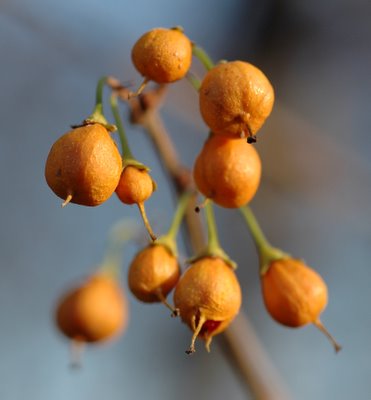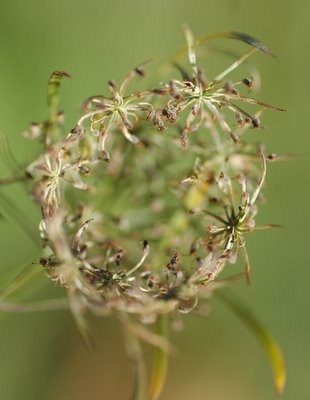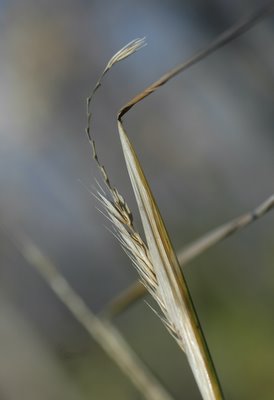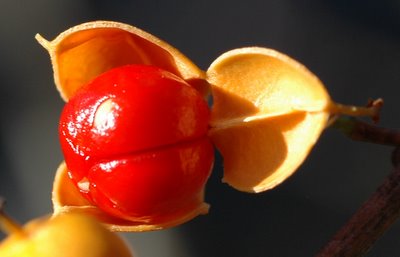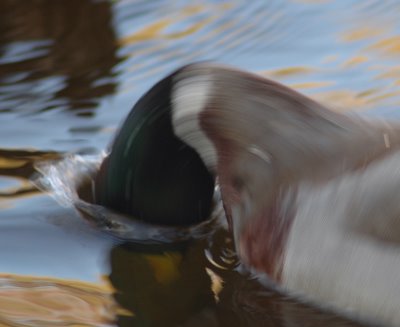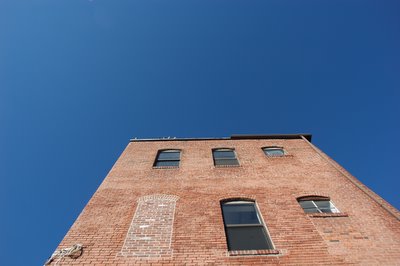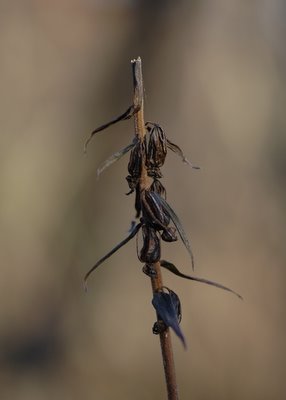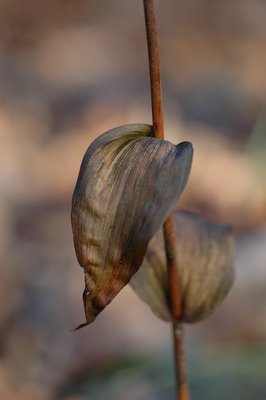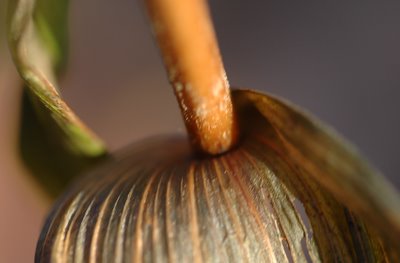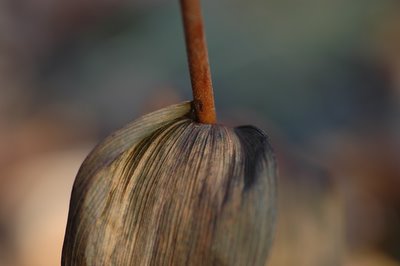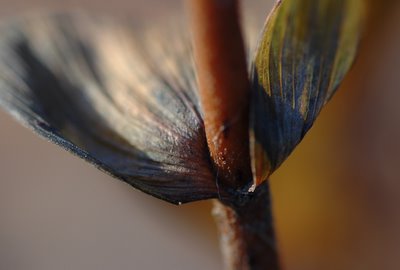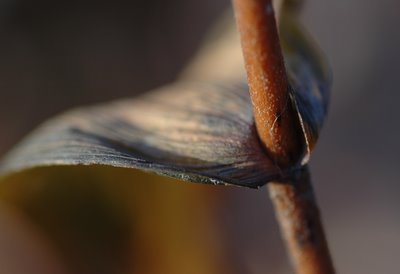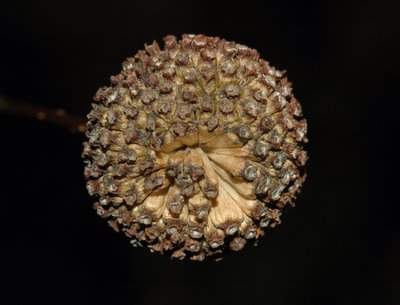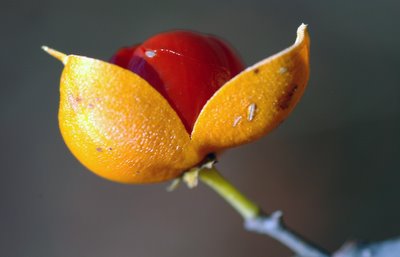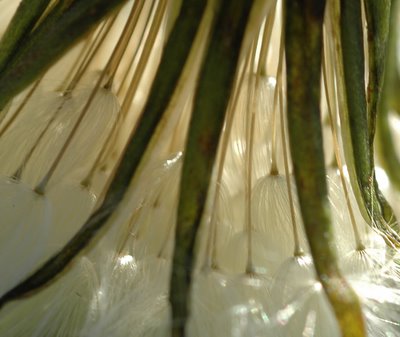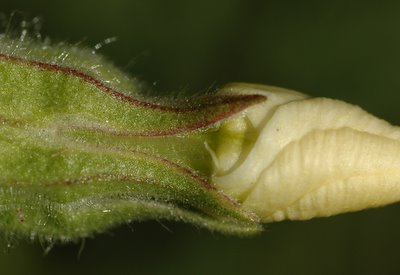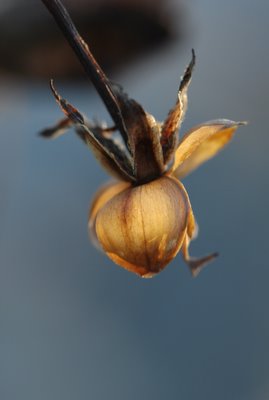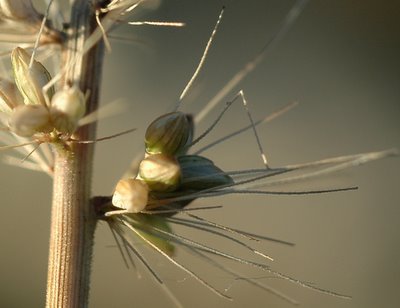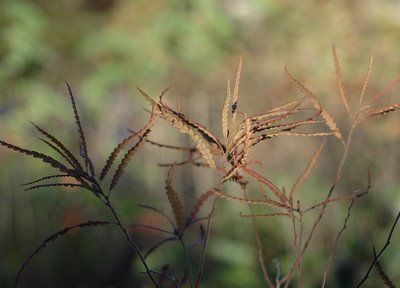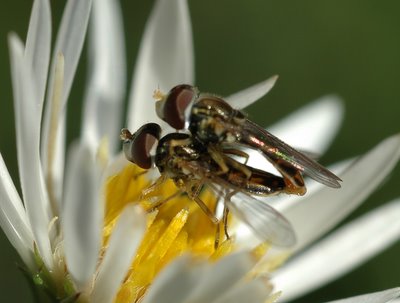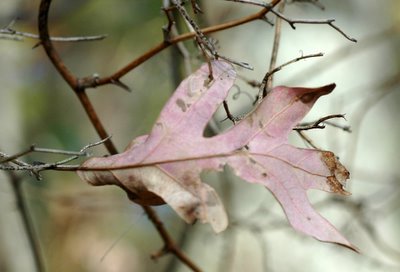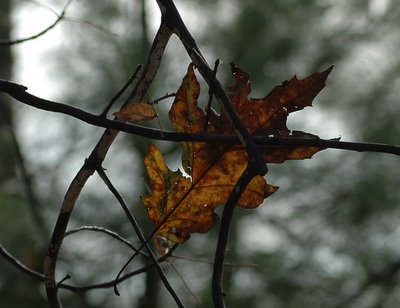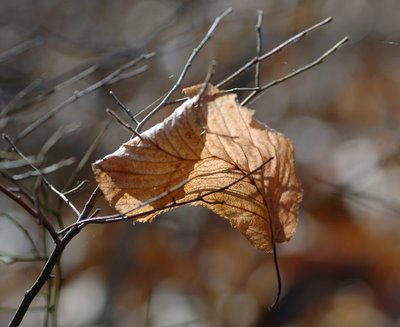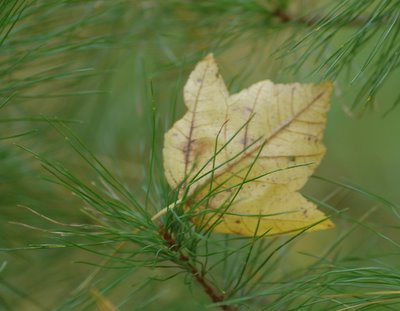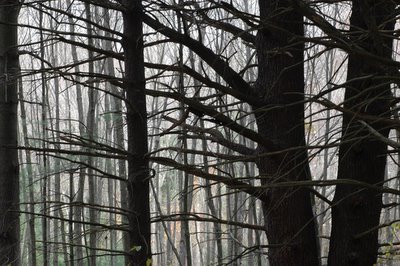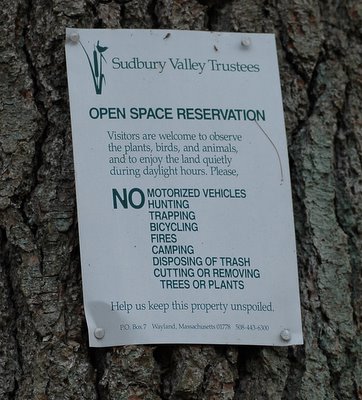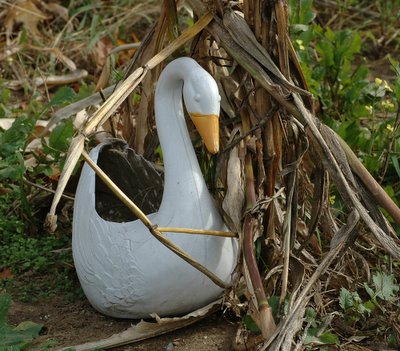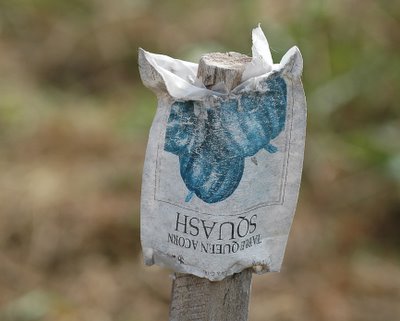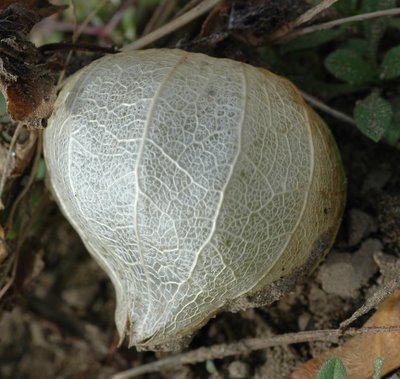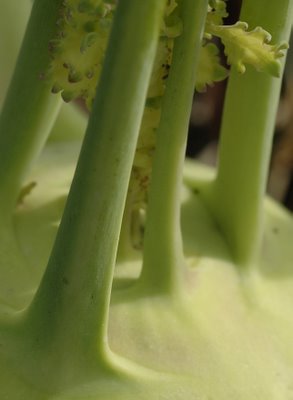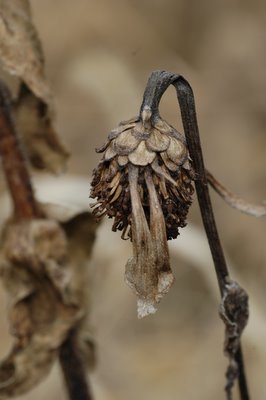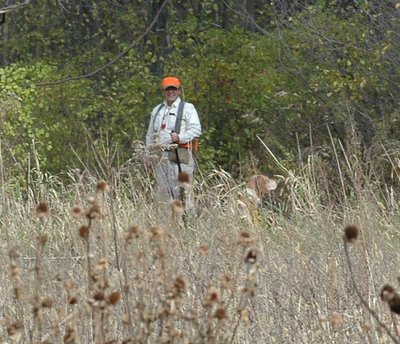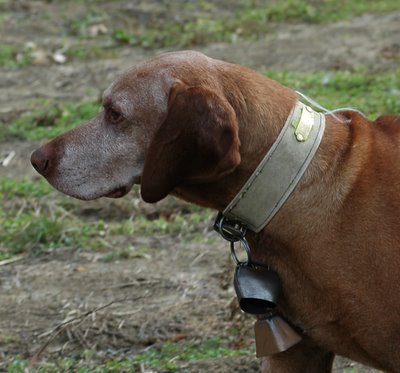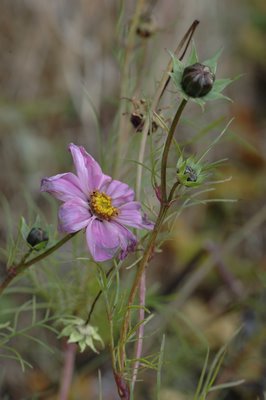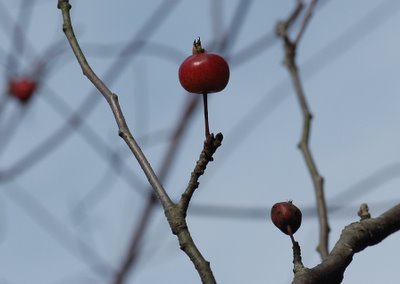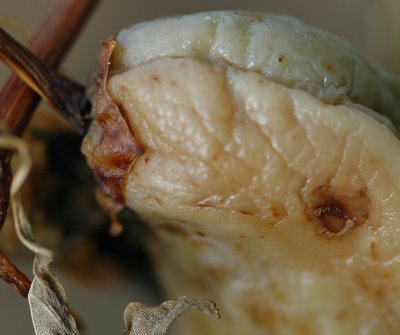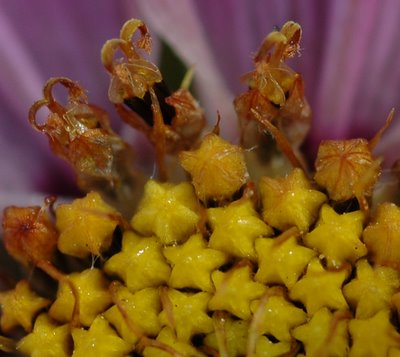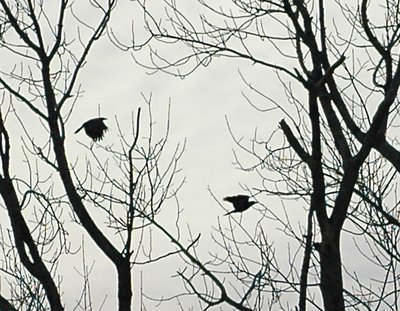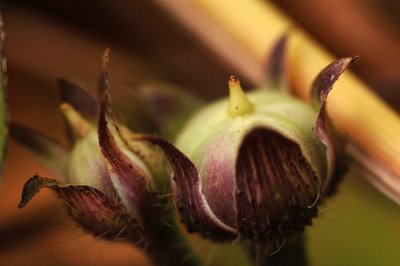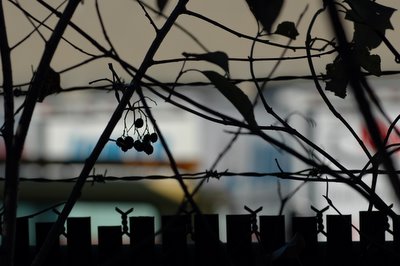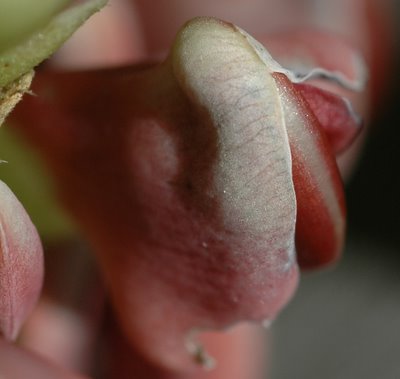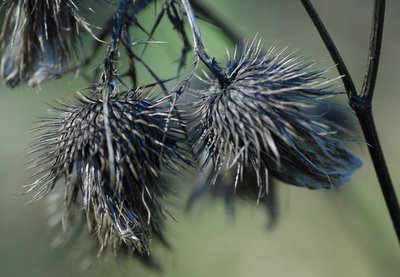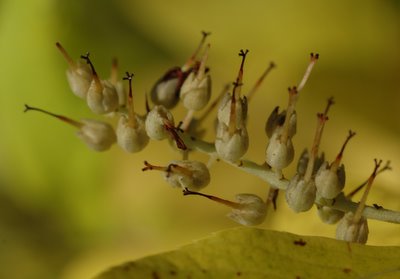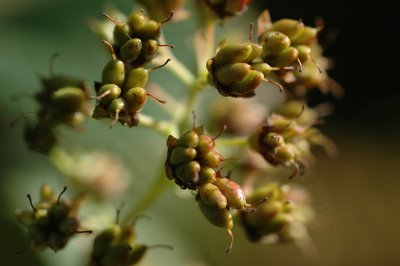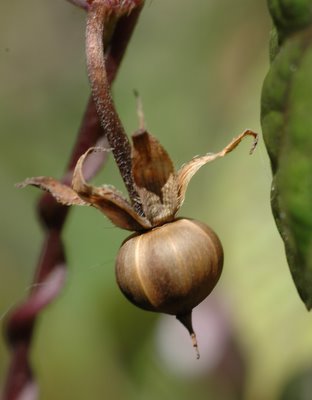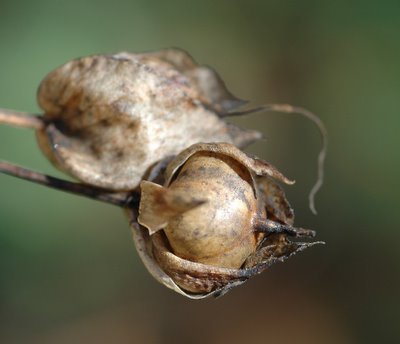Broadmoor
It was a cold and still morning, bright, then overcast. The Broadmoor Sanctuary was nearly empty, and very quiet. The small marsh beyond the boardwalk had already iced over; I thought of the turtles I'd seen there last summer, and imagined them hibernating in the mud below. The paths were covered with leaves and a thin coating of snow; the branches of the trees and bushes were mostly bare. My eye was drawn to small, hard, precise things like these pods opening in sections,
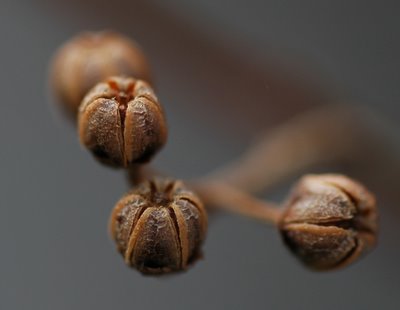
and to red things -- like these Rilkean ripening barberries.
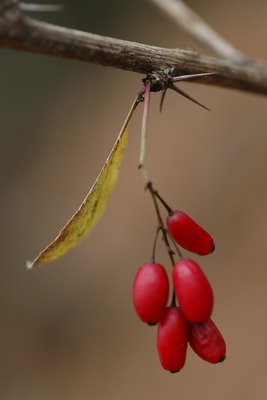
There's lots of red, in fact. The woods are stippled, punctuated in red.
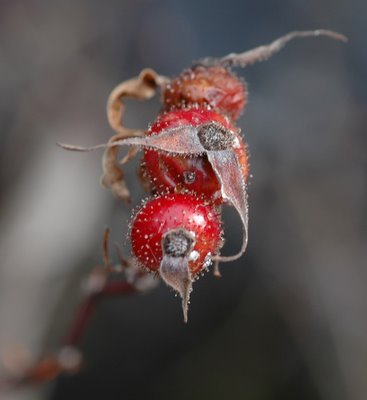
Red berries, red buds -- the color of heat transposed into a cold landscape.
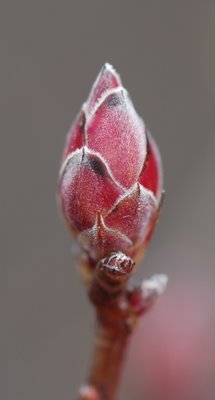
It is, I suppose, a reminder that a small flame still burns, be it in the cells of the hibernating turtles, or in the deep sap of the branches and in the seeds scattered over the ground. This may look like a landscape of death, there may indeed be death here, but death's not the whole story.
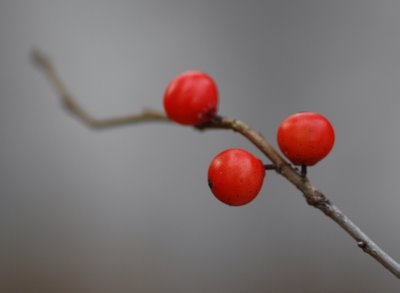
Advent begins here, among the decaying leaves and stripped branches, in the lengthening dark and the increasing cold. It begins here, as it always does, among the unspeakable horrors of the world.
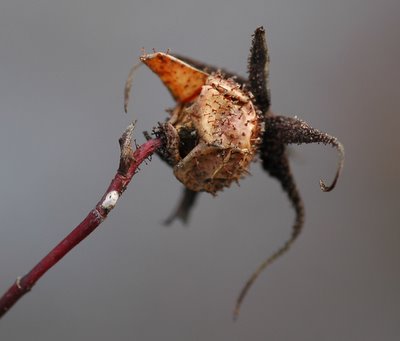
God is off somewhere, distracted, bright and distant as the winter sun. Some days he barely makes it above the horizon. Nonetheless, things happen in His name. Holy ostracisms. Sacred violence. Scripture is invoked. God Himself is invoked.
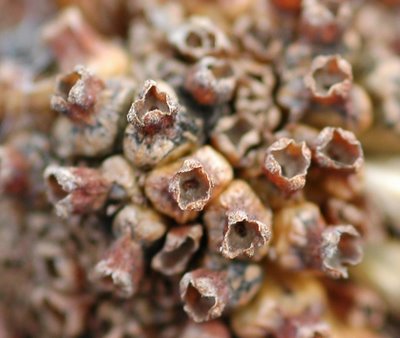
Does He notice ? He strolls the autumn woods, admiring the subtle pastels of the decaying buttonbush fruit. He hears hymns pour from the small mouths of the seeds, and hums along. His voice sounds like the north wind pouring through oak leaves, something between a hiss and a rattle.
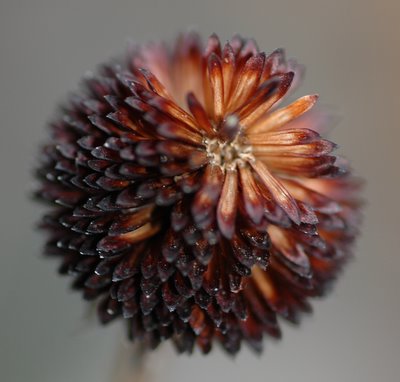
It's the season of thorn and tendril -- of rejection and of embrace. We are stripped, and poor and death-bound, horrified, petrified. But something moves among us, between us, thin as a filament, and secret, subtle, weaves us one to another.
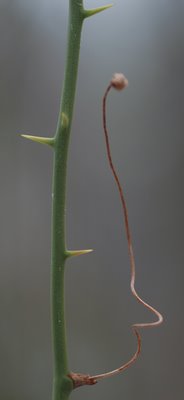
We seek each other out for warmth if nothing else.
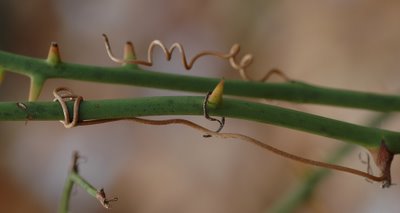
If only we could read the signs. Look closely --
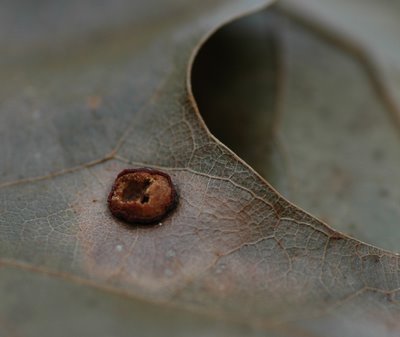
there are mangers and cradles everywhere.
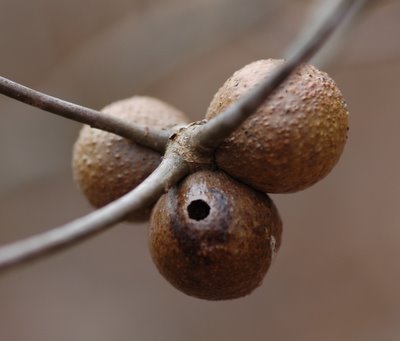
They are empty, to be sure --
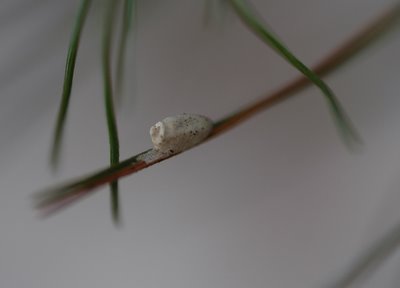
-- but that simply means they're waiting to be filled. As we are.
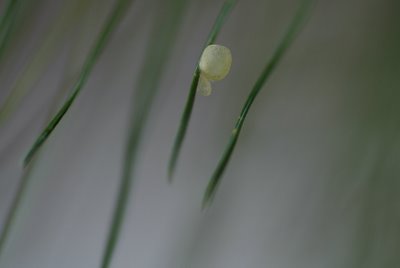
Or maybe it's the emptiness we're meant to notice, maybe that's the point: nothing's there already, nothing's been there all along --
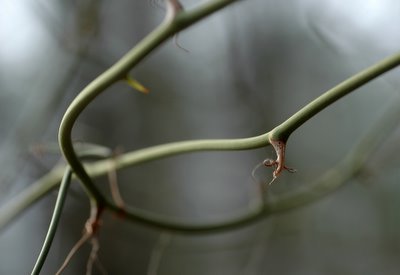
no-thing that will be made apparant, that will be spoken, drenched in ink, bound and codified as there and then and Who.
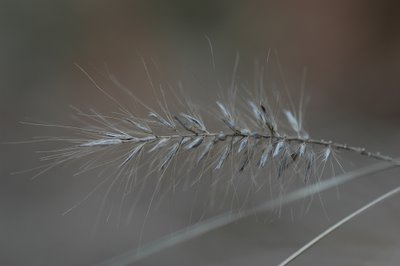
The days grow shorter and shorter. The wind cuts through me as if I were latticework. As night falls, dread arises. I dial up the thermostat, put supper on. If only there were a muddy marsh floor in which to hibernate. Time: dread, expectation, hope. The clock ticks, like seeds blown against glass.
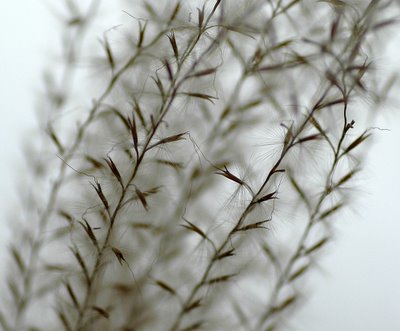
This is Advent, the time before. This is the waiting room. The story unfolds in time: prediction, event, aftermath. Sowing, fruition, harvest. We must be patient. We mustn't thumb forward to the last page to see how it will all turn out. We already know. Nonetheless, in the deepening dark and cold, by the light of whatever fire we can manage, in the company of whomever we can find, we ask --
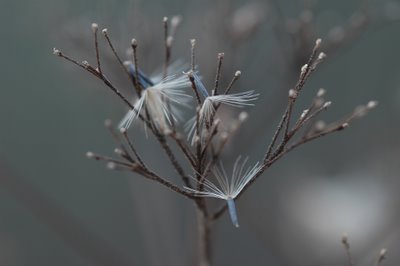
-- what is this coming thing, then, this no-thing, this word, this silence, this seed ?

and to red things -- like these Rilkean ripening barberries.

There's lots of red, in fact. The woods are stippled, punctuated in red.

Red berries, red buds -- the color of heat transposed into a cold landscape.

It is, I suppose, a reminder that a small flame still burns, be it in the cells of the hibernating turtles, or in the deep sap of the branches and in the seeds scattered over the ground. This may look like a landscape of death, there may indeed be death here, but death's not the whole story.

Advent begins here, among the decaying leaves and stripped branches, in the lengthening dark and the increasing cold. It begins here, as it always does, among the unspeakable horrors of the world.

God is off somewhere, distracted, bright and distant as the winter sun. Some days he barely makes it above the horizon. Nonetheless, things happen in His name. Holy ostracisms. Sacred violence. Scripture is invoked. God Himself is invoked.

Does He notice ? He strolls the autumn woods, admiring the subtle pastels of the decaying buttonbush fruit. He hears hymns pour from the small mouths of the seeds, and hums along. His voice sounds like the north wind pouring through oak leaves, something between a hiss and a rattle.

It's the season of thorn and tendril -- of rejection and of embrace. We are stripped, and poor and death-bound, horrified, petrified. But something moves among us, between us, thin as a filament, and secret, subtle, weaves us one to another.

We seek each other out for warmth if nothing else.

If only we could read the signs. Look closely --

there are mangers and cradles everywhere.

They are empty, to be sure --

-- but that simply means they're waiting to be filled. As we are.

Or maybe it's the emptiness we're meant to notice, maybe that's the point: nothing's there already, nothing's been there all along --

no-thing that will be made apparant, that will be spoken, drenched in ink, bound and codified as there and then and Who.

The days grow shorter and shorter. The wind cuts through me as if I were latticework. As night falls, dread arises. I dial up the thermostat, put supper on. If only there were a muddy marsh floor in which to hibernate. Time: dread, expectation, hope. The clock ticks, like seeds blown against glass.

This is Advent, the time before. This is the waiting room. The story unfolds in time: prediction, event, aftermath. Sowing, fruition, harvest. We must be patient. We mustn't thumb forward to the last page to see how it will all turn out. We already know. Nonetheless, in the deepening dark and cold, by the light of whatever fire we can manage, in the company of whomever we can find, we ask --

-- what is this coming thing, then, this no-thing, this word, this silence, this seed ?




















